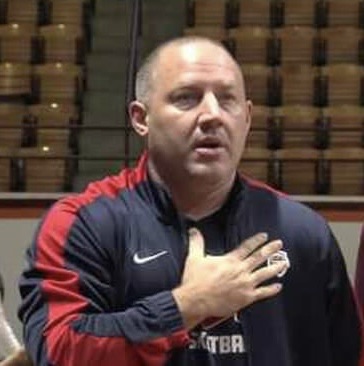Instilling values such as respect and gratitude is a fundamental part of coaching basketball, transcending the teaching of techniques and skills. Coaching involves shaping character, fostering discipline, and inspiring players to appreciate the opportunities they have, not just in the game but in life. One of these opportunities is the freedom to compete, to chase dreams, and to enjoy life in ways made possible by the sacrifices of those who came before us. The liberties we enjoy today are deeply rooted in the courage and dedication of individuals who, at critical moments in history, put their lives and education on hold to fight for their country.

This sense of gratitude and acknowledgment of sacrifice can often be overlooked in the fast-paced world of sports. Today, the national anthem, sung before significant athletic events, is often treated as just another part of the pregame ritual—a performance rather than a moment of reflection. While talented performers, from pop icons to local artists, deliver renditions of the anthem with varying styles, the deeper significance of this tradition can sometimes fade into the background, overshadowed by the spectacle. For athletes and fans alike, this moment of unity and respect often passes without truly understanding what it represents.
However, some coaches believe it is essential to preserve the meaning behind this time-honored custom. One such advocate is Buzz Williams, head coach of the Virginia Tech basketball team. Williams is deeply committed to teaching his players not only about basketball but also about values that extend beyond the court. He believes that understanding the significance of the national anthem and what it symbolizes is a critical lesson for young athletes. “These kids need to understand why it’s being performed, even though I don’t mind Lady Gaga singing it,” Williams explained. His words highlight a broader issue—how easily traditions can lose their meaning if we don’t take the time to reflect on them and pass down their importance to younger generations.
To address this, Williams took a unique and heartfelt approach with his team. He organized a poignant lesson that went beyond basketball drills and strategy. Instead, it focused on the history, meaning, and importance of the national anthem. His aim was to connect his players with the ideals the anthem represents—freedom, sacrifice, and unity. Williams wanted his athletes to understand that the anthem is not just a song but a tribute to the men and women who have fought for the freedoms that allow us to enjoy the luxuries of today, including the simple act of playing a sport.
During this lesson, Williams emphasized the sacrifices made by countless individuals throughout history. He spoke about those who left their families, careers, and personal ambitions behind to serve their country in times of war and conflict. For many athletes, especially young ones, these sacrifices might seem distant or abstract. But Williams sought to bring them closer to home, helping his team see the connections between their own opportunities and the efforts of those who paved the way for them. He reminded his players that their ability to step onto the court, wear a jersey, and compete is a privilege that should never be taken for granted.
This approach resonated deeply with his team. It was a powerful reminder that basketball, while a passion and a pursuit, exists within a larger context. It’s easy for athletes to become absorbed in the day-to-day grind of practice, games, and competition, but moments like these help them see the bigger picture. By pausing to reflect on the anthem and its meaning, players gain a renewed sense of purpose and a greater appreciation for the opportunities they have been given.
Williams’s efforts also serve as a broader lesson for anyone involved in sports or education. Coaches, teachers, and mentors play a crucial role in shaping the values of the next generation. While it’s important to teach skills and knowledge, it’s equally vital to instill respect, gratitude, and a sense of responsibility. Traditions like singing the national anthem provide an opportunity to reinforce these values, but only if we take the time to explain their significance.
For young athletes, this understanding can be transformative. It teaches them to approach their sport—and life—with humility and gratitude. It reminds them that their achievements are not solely the result of their own efforts but are built on the foundation laid by others. Whether it’s the sacrifices of soldiers, the guidance of mentors, or the support of family and friends, every success story is a collective effort.
In a world where sports are often driven by competition, fame, and individual achievement, Williams’s approach stands out. It’s a reminder that the true essence of sports lies not just in winning but in the values it teaches—teamwork, discipline, respect, and gratitude. By teaching his players to honor the national anthem and the ideals it represents, Williams is fostering a culture of appreciation that will serve them well both on and off the court.
Ultimately, the lessons learned through sports extend far beyond the game. They shape the way athletes view the world, interact with others, and face challenges in life. Williams’s heartfelt lesson is a testament to the power of coaching to inspire not just better players but better people. By encouraging his team to reflect on the meaning of the national anthem, he’s helping them connect with a legacy of sacrifice and freedom that goes beyond their immediate experiences.
In the end, this approach is about more than just basketball. It’s about building a foundation of character and values that will guide these young athletes throughout their lives. And in doing so, it ensures that traditions like the national anthem remain meaningful, bridging the past and present while inspiring future generations to carry these values forward.





